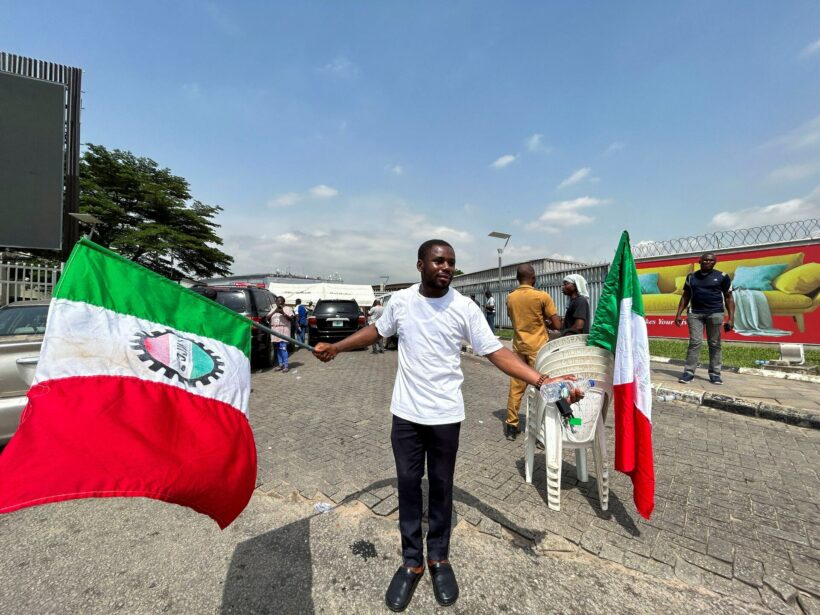
ABUJA, July 18 (Reuters) – Nigeria’s main labour unions agreed on a new minimum wage of 70,000 naira ($44) a month on Thursday after talks with the government, ending months of deadlock and the threat of strikes.
Africa’s most populous nation is grappling with the worst cost of living crisis in a generation, stoking fears of Kenyan-style protests that have rocked that country for nearly a month.
Nigeria’s two biggest union federations, the Nigerian Labour Congress (NLC) and the Trade Union Congress (TUC), have argued that soaring prices and a weakening currency caused by reforms instituted by President Bola Tinubu were hitting workers hard.
Soaring inflation has eroded incomes and hurt millions of Nigerians who are struggling to meet their basic needs.
The new wage announced by Minister of Information Mohammed Idris and union leaders, is more than double the 30,000 naira a month that was agreed in 2019.
“We are taking this new 70,000 naira minimum wage with mixed feelings because of the situation of the economy. We have to move ahead despite the situation otherwise the negotiation can linger,” NLC President Joe Ajaero told reporters.
He said the next minimum wage would be reviewed in three years instead of the customary five years.
The unions suspended a strike in early June to give negotiations a chance but warned that failure to reach an agreement could prompt members to call for new action.
Idris said Tinubu would send the proposal, which includes a provision to review the wage every three years, to parliament immediately for passage into law. Tinubu has said he will not roll back unpopular reforms, including electricity and gasoline price hikes.
On Wednesday, Tinubu asked lawmakers to approve $4 billion in additional spending to plug shortfalls in this year’s budget, with around half of it going to fund “further recurrent expenditure requirements.”
The government plans to invest in infrastructure and renewable energy, such as compressed natural gas (CNG) plants and busses to help lower transportation costs, Idris said.
($1 = 1,580.0000 naira)
(Writing by Elisha Bala-Gbogbo; Editing by Alison Williams, Susan Fenton, Philippa Fletcher)

